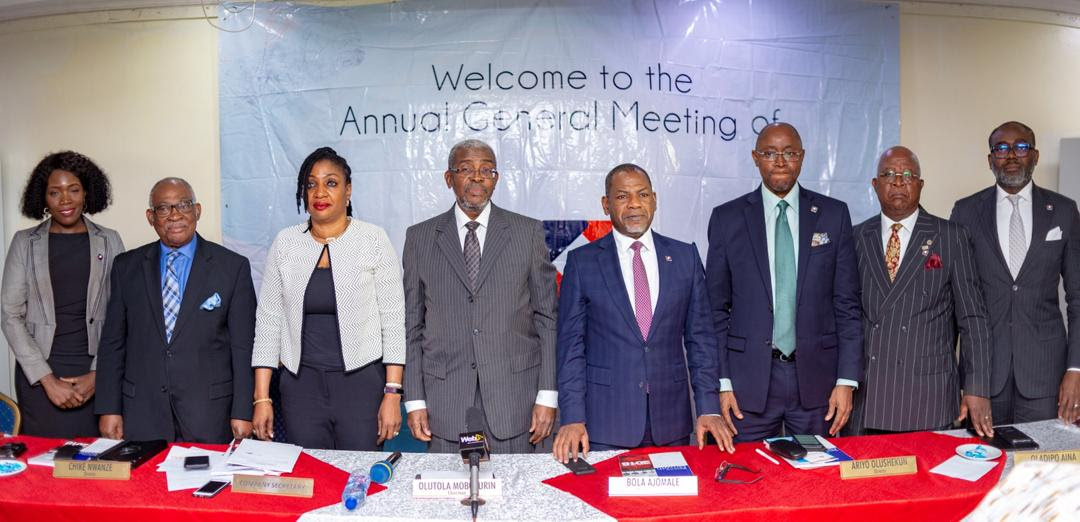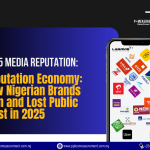Economy
NASD Generates N139m as Transaction Fees in 2019

By Adedapo Adesanya
The NASD Plc said it generated a total of N139 million as transaction fees in the 2019 financial year, lower than the N169 million raked in 2018.
This information was contained in the company’s annual report and financial statements for the period ended December 31, 2019.
An analysis of the company’s results by Business Post showed that the macroeconomic challenges had a huge effect on NASD in the accounting year.
This resulted in the 100.4 percent decline in the profit after tax of the coy for the 2019 financial year to N45.01 million from N90.4 million in the prior year.
In addition, NASD Plc further disclosed that its profit before tax went down by 41.9 percent to N36.1 million from the N62 million of the previous year.
Also, during the period under review, the exchange said the total market turnover dropped by 65.8 percent to N10.5 billion from N30.7 billion in the previous year, while the revenue generated by the firm went down by 3 percent to N162 million from N167 million earned in 2018.
It explained that the decrease in market activity experienced in 2019 was a sharp change in trend from what was witnessed in 2018 and was a direct result of a downturn in market activity as well as a reduction in the number of new securities admitted to the market.
The continued decline in the country’s risk profile coupled with the sustained dominance of the fixed income sector of the market also contributed to investor apathy, the coy said.
Despite the problems, the company recorded a 13.5 percent increase in investment income, which closed at N65.5 million compared with the N57.7 million recorded in 2018.
The first over-the-counter bourse in the country said it generated listing fees of N2.62 million, while total expenses amounted to N196.7 million compared to the N163 million recorded in the corresponding period of 2018.
The company said it recorded an operating loss of N30.6 million compared to an operating profit of N4.3 million recorded in the year 2018.
Total assets rose during the period under review by 7 percent to N660.8 million from N617.9 million, while total liabilities dropped 9.1 percent to 19.9 million from N21.9 million in 2018.
In terms of overall market activity, the overall NASD Securities Index (NSI) depreciated by 5.49 percent between January 2019 and December 2019, while the market capitalisation declined by 2.6 percent from N514.77 billion in January 2019 to N501.14 billion as of December 31, 2019.
Speaking on the outlook for the market, Chairman of NASD Plc, Mr Olutola Mobolurin, said, “The early passage of the 2020 budget promised to create a more enabling environment for economic growth.
“The coronavirus pandemic, however, has created a total disruption of global trade, capital flows and universal business practices.
“As the global business becomes less physically driven and more digital–human remote, we see an opportunity for us to exploit our nimbleness and unique position as an over-the-counter securities exchange.
“Fortuitously, in 2019 NASD had reassessed the company’s strategy and redefined its focus to facilitate it, becoming the hub of first call for capital formation in West Africa.
“We are expanding our product offerings and services to cater to the new business and capital raising environment. We have embarked on a material technology overhaul that will improve our scope, efficiency and effectiveness as an over-the-counter market.
“We shall continue to deliver our objectives to all stakeholders in NASD Plc,” he said.
The 7th Annual General Meeting (AGM) of NASD PLC will hold on Thursday, June 25 at NASD Plc, 9th Floor, UBA House, 57 Marina, Lagos at 11.00am.
Meanwhile, the board of directors of the company declared no dividend payment to shareholders for the year.
Economy
Presco, GTCO List Additional Shares on Stock Exchange

By Aduragbemi Omiyale
The duo of Presco Plc and Guaranty Trust Holding Company (GTCO) Plc has listed additional shares on the Nigerian Exchange (NGX) Limited.
The extra equities of these two publicly-listed organisations were admitted to the local stock exchange last Friday, increasing their respective total issued and fully paid-up shares.
For Presco, it listed fresh 166,666,667 ordinary shares of 50 Kobo each on the daily official list of the NGX on Friday, January 30, 2026, increasing its total issued and fully paid-up stocks from 1,000,000,000 units to 1,166,666,667 units.
The additional equities were from the rights issue of the firm allotted to shareholders on the basis of one new share for every existing six ordinary shares held as at close of business on Monday, October 13, 2025.
In a circular issued over the weekend, the NGX said, “Trading licence holders are hereby notified that additional 166,666,667 ordinary shares of 50 Kobo each of Presco Plc were on Friday, January 30, 2026, listed on the daily official list of Nigerian Exchange (NGX) Limited (NGX).
“The additional shares arose from the company’s rights issue of 166,666,667 ordinary shares of 50 Kobo each at N1,420.00 per share on the basis of one new share for every existing six ordinary shares held as at close of business on Monday, October 13, 2025.
“With the listing of the additional 166,666,667 ordinary shares, the total issued and fully paid-up shares of Presco Plc has now increased from 1,000,000,000 to 1,166,666,667 ordinary shares of 50 Kobo each.”
As for GTCO, it listed additional125,000,000 ordinary shares of 50 Kobo each at N80.00 per unit offered through private placement.
The fresh equities taken to Customs Street have raised the total issued and fully paid-up shares of GTCO from 36,425,229,514 to 36,550,229,514 ordinary shares of 50 Kobo each.
Economy
FG, States, Local Councils Share N1.969trn FAAC Allocation

By Adedapo Adesanya
A total of N1.969 trillion was shared to the federal government, the 36 state governments and the 774 local government councils from the gross revenue of N2.585 trillion generated by the nation in December 2025.
The money was disbursed to the three tiers of government at the January 2026 Federation Account Allocation Committee (FAAC) meeting held in Abuja.
In a statement issued on Monday by the Director of Press and Public Relations in the Office of the Accountant-General of the Federation (OAGF), Mr Bawa Mokwa, it was stated that the FAAC allocation comprised statutory revenue of N1.084 trillion, distributable Value Added Tax (VAT) revenue of N846.507 billion, and Electronic Money Transfer Levy (EMTL) revenue of N38.110 billion.
“Total deduction for cost of collection was N104.697 billion, while total transfers, refunds, and savings were N511.585 billion,” the statement partly read.
It was also revealed that from the N1.969 trillion total distributable revenue, the federal Government received the sum of N653.500 billion, and the state governments received N706.469 billion, the local government councils received N513.272 billion, and the sum of N96.083 billion was shared with the benefiting state as 13 per cent derivation revenue.
He said of the N1.084 trillion distributable statutory revenue, the central government received N520.807 billion, the state governments got N264.160 billion, the local councils were given N203.656 billion, and N96.083 billion was shared to the benefiting states as 13 per cent derivation revenue.
FAAC noted that from the N846.507 billion distributable VAT earnings, the federal government got N126.976 billion, the state governments received N423.254 billion, and the local government councils got N296.277 billion.
From the revenue from EMTL, Mr Mokwa explained that the national government was given N5.717 billion, the state governments got N19.055 billion, and the councils collected N13.338 billion.
He added that the companies’ Income Tax (CIT)/CGT and STD, Import Duty and Value Added Tax (VAT) increased significantly in December, while oil and gas royalty, CET levies and fees increase marginally, with excise duty, Petroleum Profit Tax (PPT)/Hydrocarbon Tax (HT), and EMTL considerably down.
Economy
Oil Exports to Drop as Shell Commences Maintenance on Bonga FPSO

By Adedapo Adesanya
Nigeria’s oil exports will drop in February following the shutdown of the Bonga Floating Production Storage and Offloading (FPSO) vessel scheduled for turnaround maintenance.
Shell Nigeria Exploration and Production Company (SNEPCo) Limited confirmed the development in a statement issued, adding that gas output will also decline during the maintenance period.
This comes as SNEPCo begun turnaround maintenance on the Bonga FPSO, the statement signed by its Communications Manager, Mrs Gladys Afam-Anadu, said, describing the exercise as a statutory integrity assurance programme designed to extend the facility’s operational lifespan.
SNEPCo Managing Director, Mr Ronald Adams, said the maintenance would ensure safe, efficient operations for another 15 years.
“The scheduled maintenance is designed to reduce unplanned deferments and strengthen the asset’s overall resilience.
“We expect to resume operations in March following completion of the turnaround,” he said.
Mr Adams said the scope included inspections, certification, regulatory checks, integrity upgrades, engineering modifications and subsea assurance activities.
“The FPSO, about 120 kilometres offshore in over 1,000 metres of water, can produce 225,000 barrels of oil daily.
“It also produces 150 million standard cubic feet of gas per day,” he said.
He said maintaining the facility was critical to Nigeria’s production stability, energy security and revenue objectives.
Mr Adams noted that the 2024 Final Investment Decision on Bonga North increased the importance of the FPSO’s reliability. He said the turnaround would prepare the facility for additional volumes from the Bonga North subsea tie-back project.
According to him, the last turnaround maintenance was conducted in October 2022.
“On February 1, 2023, the asset produced its one billionth barrel since operations began in 2005,” Mr Adams said.
SNEPCo operates the Bonga field in partnership with Esso Exploration and Production Nigeria (Deepwater) Limited and Nigerian Agip Exploration Limited, under a Production Sharing Contract with the Nigerian National Petroleum Company (NNPC) Limited.
The last turnaround maintenance activity on the FPSO took place in October 2022. On February 1, the following year, the asset delivered its 1 billionth barrel of oil since production commenced in 2005.
-

 Feature/OPED6 years ago
Feature/OPED6 years agoDavos was Different this year
-
Travel/Tourism9 years ago
Lagos Seals Western Lodge Hotel In Ikorodu
-

 Showbiz3 years ago
Showbiz3 years agoEstranged Lover Releases Videos of Empress Njamah Bathing
-

 Banking8 years ago
Banking8 years agoSort Codes of GTBank Branches in Nigeria
-

 Economy3 years ago
Economy3 years agoSubsidy Removal: CNG at N130 Per Litre Cheaper Than Petrol—IPMAN
-

 Banking3 years ago
Banking3 years agoSort Codes of UBA Branches in Nigeria
-

 Banking3 years ago
Banking3 years agoFirst Bank Announces Planned Downtime
-

 Sports3 years ago
Sports3 years agoHighest Paid Nigerian Footballer – How Much Do Nigerian Footballers Earn






















